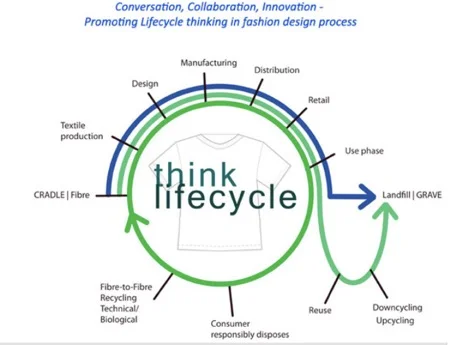Sustainable Fashion | What Needs To Change In The Industry?
Making the fashion industry sustainable is one of the biggest challenges of the 21st century.
That’s why Genesis hosted our fashion sustainability workshop to discuss sustainability in fashion.
@inspireatgenesis
Sustainable fashion isn’t just a philosophy. It’s an approach that must be designed into industry processes.
It requires a balance between competing needs that considers the environmental and social issues it creates.
In recent years, it has become increasingly clear that trend-driven ‘fast fashion’ has significant environmental costs.
Second to oil, the clothing and textile industry is the largest polluter in the world.
It’s estimated the fashion industry produces 100 billion new items of clothing every year, with the majority made from virgin resources. Three out of five of those items wind up in landfill within 12 months of being bought.
futurescienceleaders.com
Why is sustainability so difficult?
According to research by Professor Robert Conard and Dr.Kenneth M.Kambara’s, when it comes to key purchasing decisons, Millennials decide to buy based on:
The price/value (95%)
Uniqueness of a product (92%)
Brand name (60%)
Sustainability (only 35%)
There remains a disconnect between the impact of fast fashion, and conscious clothing manufacturers pricing themselves outside the spending power of most people.
According to clarifygreen.com - there are 3 main reasons why sustainable products are more expensive:
The cost of fabric is more expensive
With niche understanding of sustainability in fashion, demand for sustainable products is not as high as common products.
Fair labour and ethical practices cost more.
Visible Clothing
In fact, when it comes to sustainability, everything along the manufacturing and production process costs more.
From procuring raw materials to shipping the final product, ethical and sustainable practices are at least 4 times more expensive than fast fashion process.
But is that not worth paying for?
Fast fashion in Indonesia
Fast fashion is big business in Indonesia.
According to the latest research of YouGov Omnibus, 9% of Indonesians own over 100 garments.
41% millennials said they purchased half of their new clothes in the past year alone; the highest proportion of new clothing of any age bracket.
That’s to say nothing of Government targets to capture 5% of the global textile manufacturing industry.
Ed Walker for Business of Fashion
This has huge repercussions for Java's water ways. Particularly Citarum, one of the most polluted rivers in the world.
Processes such as textile bleaching and colouring consume and pollute large amounts of the natural water resource.
2,800 factories rely on West Java’s longest river to supply and dispose of waste water.
These include some of global fashion’s subsidiaries for brands such as Zara, Gap, Adidas and H&M.
Greenpeace
Slow Fashion / Independent Brands
Some brands are rejecting the approach of fast fashion. One notable Bali-based brand is Rimmba.
Courtesy of Rimmba
Inspired by age-old Sumba manufacturing process, Rimmba garments have been individually handmade and artisan-dyed using 100% natural plants.
They get their dye’s from botanicals native to Indonesia.
Rimmba also minimizes waste to the best of their ability. By maximising their scrap fabric, they can also make everything from jewellery pouches to boxing hand wraps.
rimmba.com
Closing The Cycle
Solving the inherent problems of the Fashion Industry won’t be easy.
But besides only blaming the major brands, it’s our buying behaviour we need to change. Only then will the fast fashion giants listen.
We need to find a way to make the industry a circular economy, that encourages consumers to replace today’s throw away culture with one that values recycling and long-term use.
The transparency of fashion brands are vital to the fashion revolution.
If consumers are aware of how their clothes are produced, it’s more likely that companies will engage in sustainable and ethical practices.
It’s time we re-discovered long-term relationships to the products we purchase and produce.
In keeping with our sustainability theme, we are delighted to be hosting another related workshop.
Sustainability advocacy group New World Together will be presenting on the title “What Is Happening To US?“
In order to confront the challenges of the 21st Century, we need individual and collective solutions that tackle the root causes of our troubled paradigm.
Nothing is off the table in this Workshop.
SIGN UP
@inspireatgenesis














